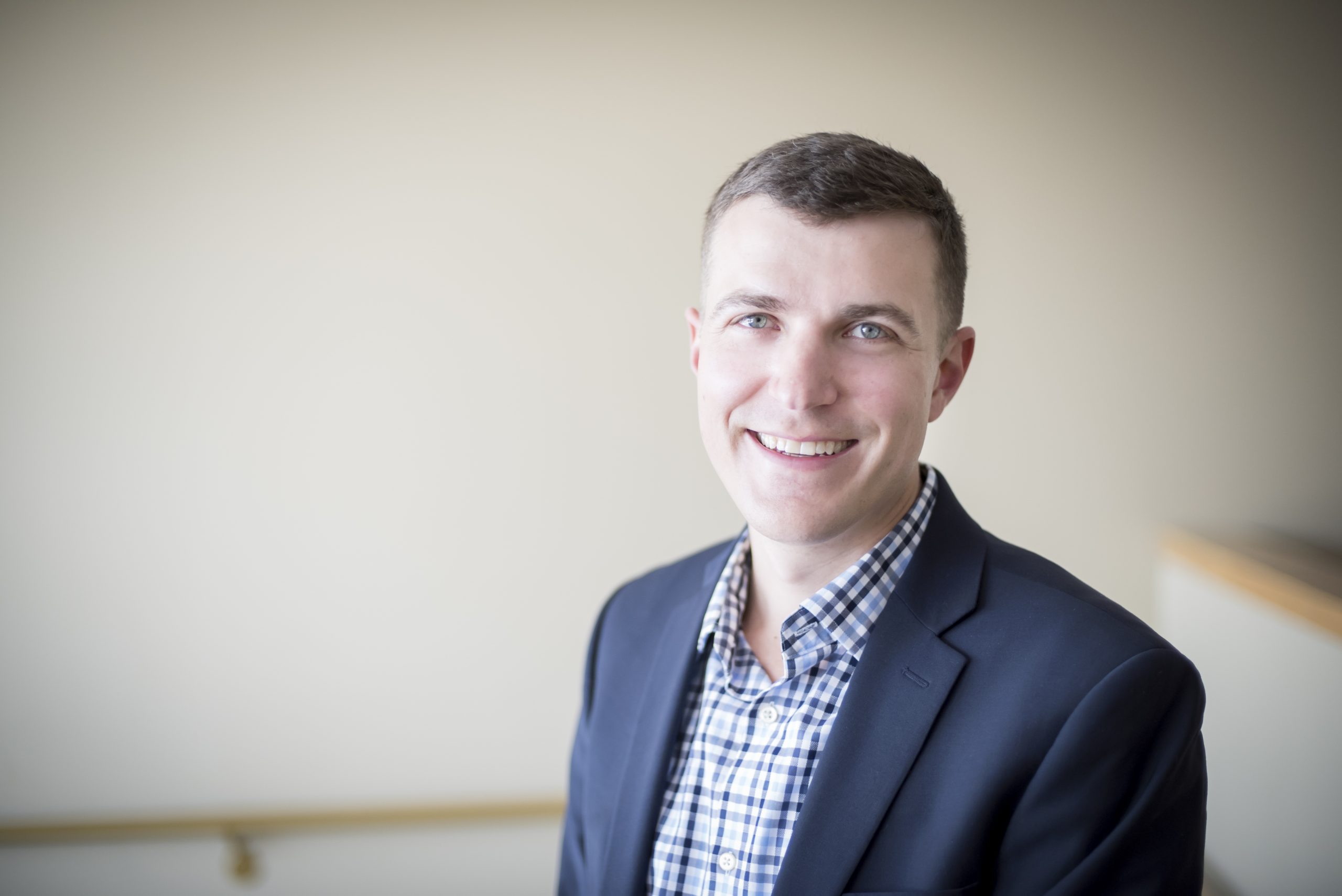Daniel Sellers was recently named one of three finalists for Teach For America’s Peter Jennings Award. Sellers, a 2006 graduate of Gustavus Adolphus College, currently works as the founding executive director of education nonprofit EdAllies in Minneapolis.
Teach For America’s Peter Jennings Award was established in 2007 and is “presented annually to a Teach For America alum who embodies our core values and whose work has led to significant change on a broad scale in the last year.”
“I am humbled to even be nominated for the award, much less considered as one of three finalists,” said Sellers, who majored in sociology and anthropology at Gustavus. “There are thousands of Teach For America alumni doing incredible, inspiring, life-changing work for kids and families. It is on their shoulders that I stand as a finalist.”
Sellers began with Teach For America following graduation, serving a school in North Carolina before coming back to Minnesota to establish a Teach For America chapter in the Twin Cities.
“Daniel is one of the students whose post-Gustavus work and life I’ve followed most closely and with enormous admiration,” Gustavus associate provost and political science professor Alisa Rosenthal said. “We’ve stayed in touch over the years as Daniel made his way through his time as a TFA teacher in North Carolina, helped establish TFA in the Twin Cities, and now helps to lead the fight for closing the achievement gap and providing excellent public education for all students.”
In his early days at Teach For America, Sellers taught sixth grade math, where he raised the number of students passing the state standardized math exam from 40 to 75 percent in his first year. Back in Minnesota, he worked hard to ensure that Corps members could get certified to teach in the state.
“My leadership is grounded in values that I developed during my time on campus: equity, honesty, inventiveness, courage, and humility,” Sellers said. “Through my sociology courses I began to see how our education policies, systems, and beliefs must shift in order to ensure students from all backgrounds can reach their full potential.”
For Sellers, that means his work for EdAllies, a nonprofit that collaborates with schools to ensure that every student in Minnesota succeeds in a rigorous and engaging education. By focusing on putting underserved students first, removing barriers facing successful schools and programs, and fostering an inclusive conversation about what’s possible for students, EdAllies challenges traditional educational practices around teacher licensure, teacher prep, parental choice, data management and usage, and educational transparency.
“He’s principled, committed, and willing to do the hard—and not at all glorious—day-to-day tasks that effect real change,” Rosenthal added.
After igniting his passion for education during his time with Teach For America, Sellers continues to help students reach their full potential‒even when it isn’t easy.
“Working for social change can be exhausting and it can be easy to get frustrated – successes often come in fits and starts. It’s important, however, to take time to reflect on the progress that we’ve made over the last several years to remove barriers standing in the way of success for students in Minnesota who are least well served in our public schools,” Sellers said.
It all starts with finding your passion and fighting for it, he explained.
“Be bold in your beliefs. Be aggressive in seeking a more equitable and just world. Be humble—you don’t know everything just yet,” Sellers advises students. “In other words, don’t be afraid to take a controversial stance, but don’t be too proud to consider perspectives you might otherwise not. And, most importantly, once you’ve set a clear goal, pursue it with a titanium spine.”
Teach For America works in partnership with urban and rural communities in more than 50 regions across the country to expand educational opportunity for children by recruiting and developing a diverse corps of outstanding leaders to make an initial two-year commitment to teach in high-need schools and become lifelong leaders in the effort to end educational inequity.

Leave a Reply
You must be logged in to post a comment.